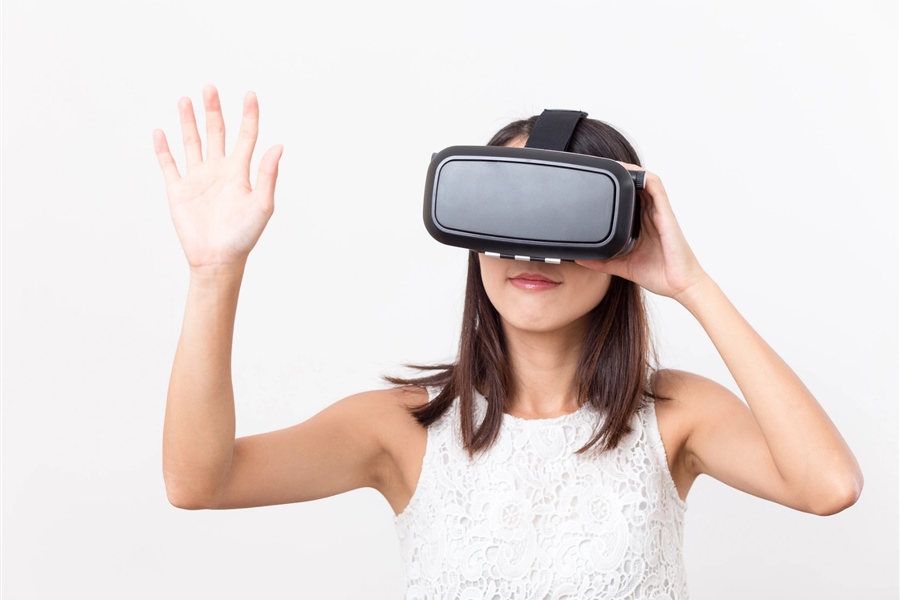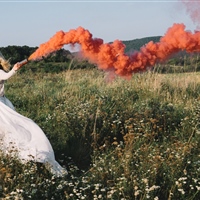
The way we preserve and experience wedding memories is undergoing a remarkable transformation. As technology continues to evolve at breakneck speed, couples are no longer limited to traditional photo albums and static videos. The future promises immersive, interactive experiences that will allow us to relive our special day in ways previous generations could never have imagined.
Beyond the Traditional Photo Album
For centuries, wedding memories were captured through formal portraits and perhaps a handful of candid shots. The digital revolution changed this landscape dramatically, but we're now on the cusp of an even more significant shift. Today’s couples can expect their wedding memories to be preserved through multiple sensory channels, creating rich, multi-dimensional experiences that go far beyond what a simple photograph could ever convey.
The traditional wedding album, whilst still cherished, is being complemented by dynamic digital alternatives. Interactive digital albums allow couples to incorporate video clips, audio recordings, and even 360-degree photography, creating a more comprehensive narrative of their special day.
Virtual and Augmented Reality Experiences
Perhaps the most exciting development in wedding memory preservation is the emergence of virtual and augmented reality technologies. Imagine being able to step back into your ceremony venue twenty years later, experiencing the same emotions as you walk down the aisle once again. VR wedding films are already being produced by forward-thinking videographers, capturing ceremonies in full 360-degree footage that allows couples to revisit their day from any angle or perspective.
Augmented reality is adding another layer to this experience. Wedding venues are beginning to offer AR features that overlay digital elements onto physical spaces. Couples can point their smartphones at specific locations and watch their ceremony unfold before their eyes, complete with digital recreations of floral arrangements, decorations, and even guests who may no longer be with them.
Artificial Intelligence and Smart Curation
AI technology is revolutionising how wedding photos and videos are processed and presented. Smart algorithms can now automatically identify the best shots from thousands of images, create highlight reels from hours of footage, and even enhance photos in real-time. Some AI systems can recognise individual guests and automatically tag them across all media, making it easier for couples to share specific moments with friends and family.
Machine learning is also being used to predict which moments will be most meaningful to couples. By analysing patterns in successful wedding photography and videography, AI can help photographers anticipate and capture those fleeting, precious moments that might otherwise be missed.
Drone Photography and Aerial Perspectives
The increasing accessibility of drone technology has opened up entirely new perspectives for wedding photography. Aerial shots that were once the exclusive domain of Hollywood productions are now available to couples with modest budgets. These sweeping overhead views provide a unique context for wedding venues and create dramatic footage that adds cinematic quality to wedding films.
Advanced drones equipped with multiple cameras can capture simultaneous angles, providing editors with extensive material to create dynamic, flowing sequences that rival professional film productions. As drone technology continues to improve, we can expect even more sophisticated aerial choreography in wedding videography.
Live Streaming and Global Participation
The global events of recent years accelerated the adoption of wedding live streaming, but this technology is evolving beyond simple necessity into an art form. High-quality streaming allows distant family members and friends to participate in ceremonies in real-time, complete with interactive features that let remote guests leave messages and well-wishes during the event.
Some couples are taking this concept further by creating multi-camera streaming experiences that allow remote viewers to choose their preferred angle or focus on specific aspects of the ceremony. This democratisation of the wedding experience ensures that geographical boundaries need not limit who can share in a couple’s special day.
Personalised Digital Experiences
The future of wedding memories lies in personalisation. AI-driven platforms are beginning to create unique digital experiences tailored to each couple’s preferences, relationship history, and aesthetic choices. These might include personalised music selections that evolve throughout the wedding film, custom graphics that reflect the couple’s interests, or interactive timelines that guests can explore to learn more about the couple’s journey together.
Social media integration is becoming more sophisticated, with platforms designed specifically for weddings that create private, secure spaces for sharing memories amongst the wedding party and guests. These platforms often include features like collaborative photo albums, guest message boards, and even virtual guest books that capture audio and video messages.
Sustainable Memory Keeping
As environmental consciousness grows, couples are increasingly interested in sustainable approaches to memory keeping. Digital-first strategies reduce the need for physical prints and albums, whilst cloud storage ensures memories are preserved without the environmental impact of traditional printing processes.
Some innovative companies are exploring biodegradable storage media and carbon-neutral cloud services specifically for wedding memories. These eco-friendly approaches allow couples to preserve their memories whilst minimising their environmental footprint.
The Emotional Connection Remains Central
Despite all these technological advances, the heart of wedding memory preservation remains unchanged: the desire to capture and preserve the emotions, connections, and joy of one of life’s most significant days. Technology serves as a tool to enhance these memories, not replace the fundamental human experiences they represent.
The most successful implementations of new wedding memory technologies are those that enhance rather than overshadow the emotional core of the celebration. Whether through AI-enhanced photography, VR experiences, or interactive digital albums, the goal remains the same: to help couples relive and share the love, laughter, and happiness of their wedding day.
Looking Ahead
As we look towards the future, emerging technologies like holographic displays, advanced haptic feedback, and even more sophisticated AI promise to create wedding memory experiences we can barely imagine today. However, the most important aspect of this technological evolution is how it serves to strengthen human connections and preserve the timeless emotions that make weddings so special.
The future of wedding memories isn’t just about having better cameras or more storage space—it’s about creating richer, more meaningful ways to preserve and share the moments that matter most. As these technologies continue to develop, couples will have unprecedented opportunities to ensure their love story is captured, preserved, and celebrated for generations to come.
Read some more of our articles in our Wedding Trends section for more insights.


